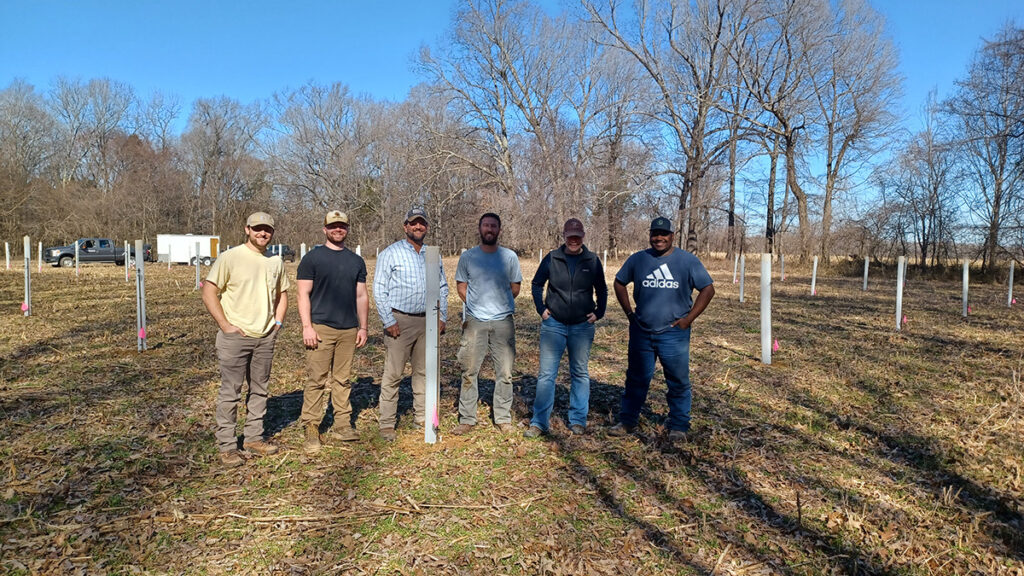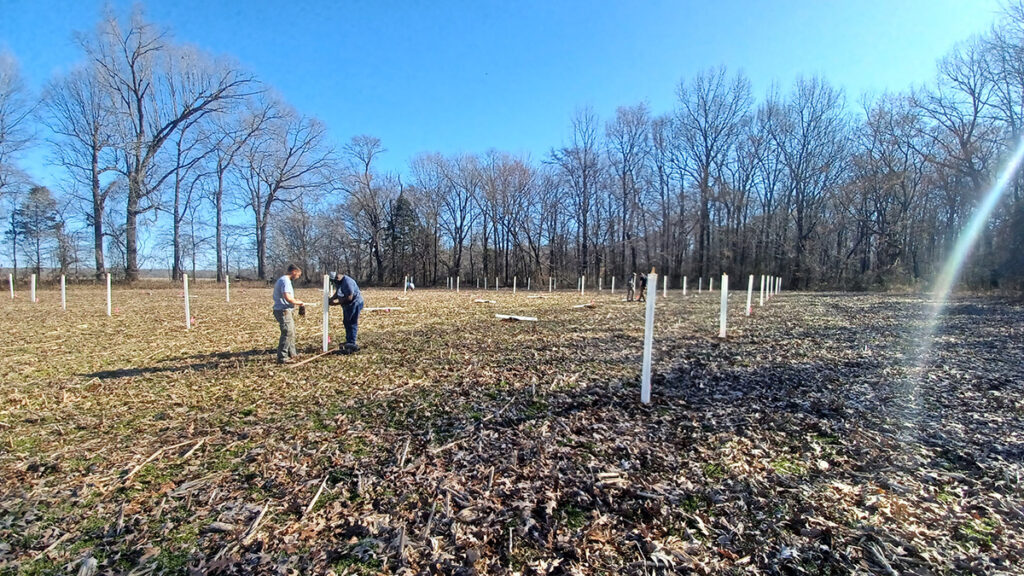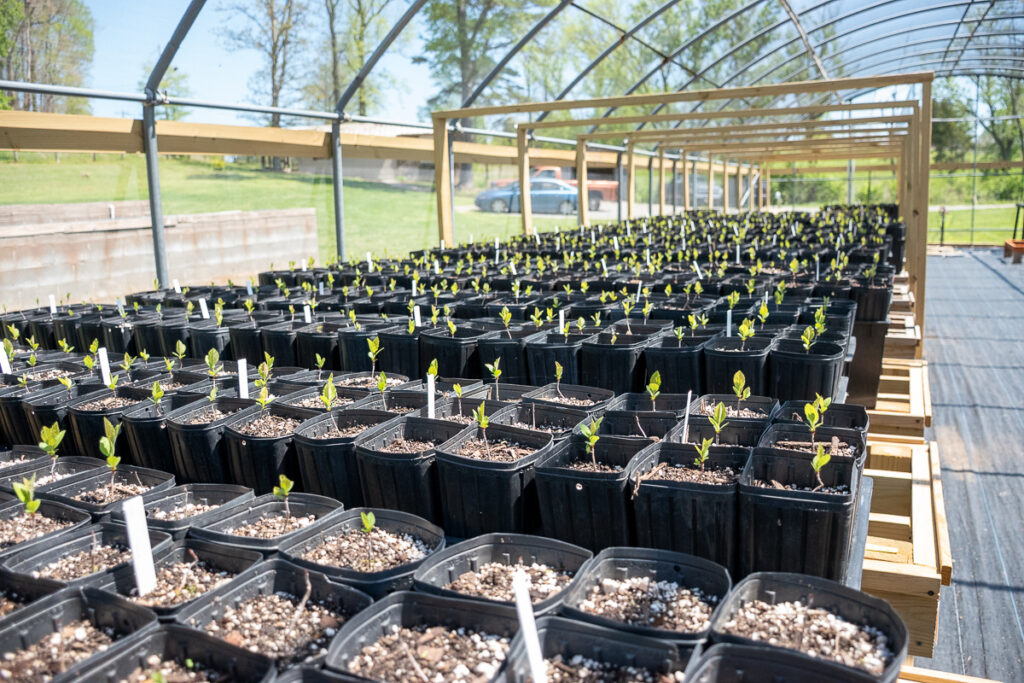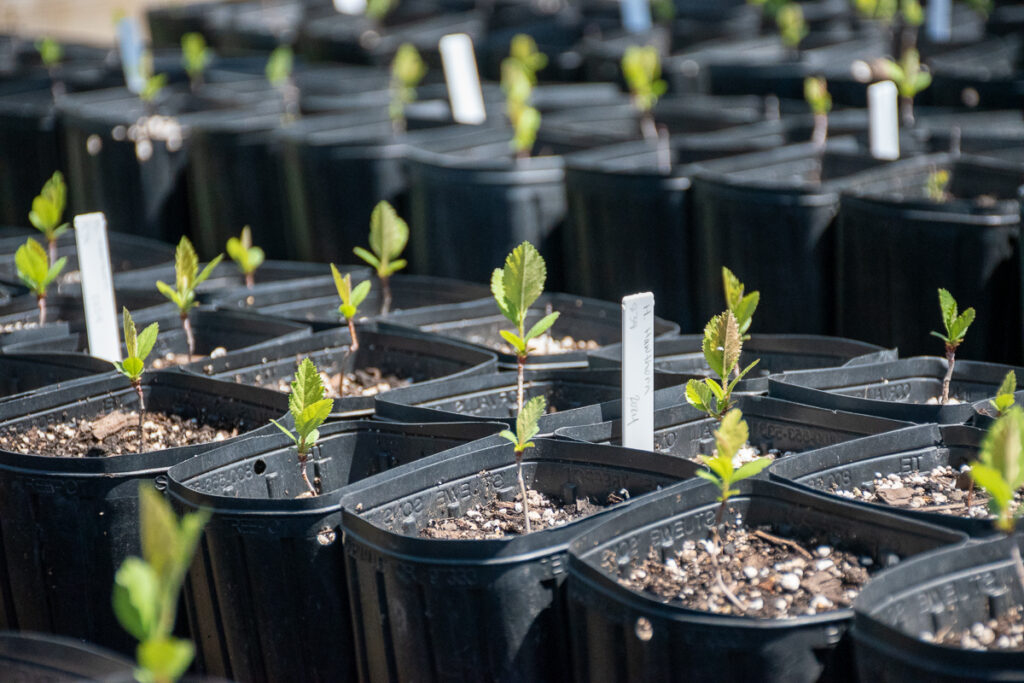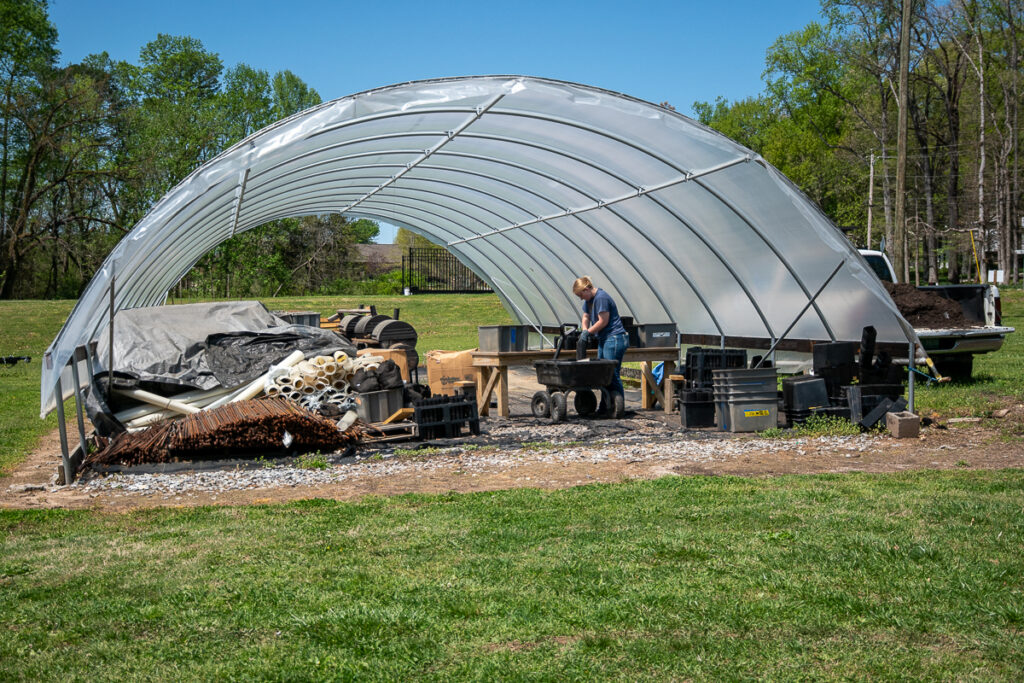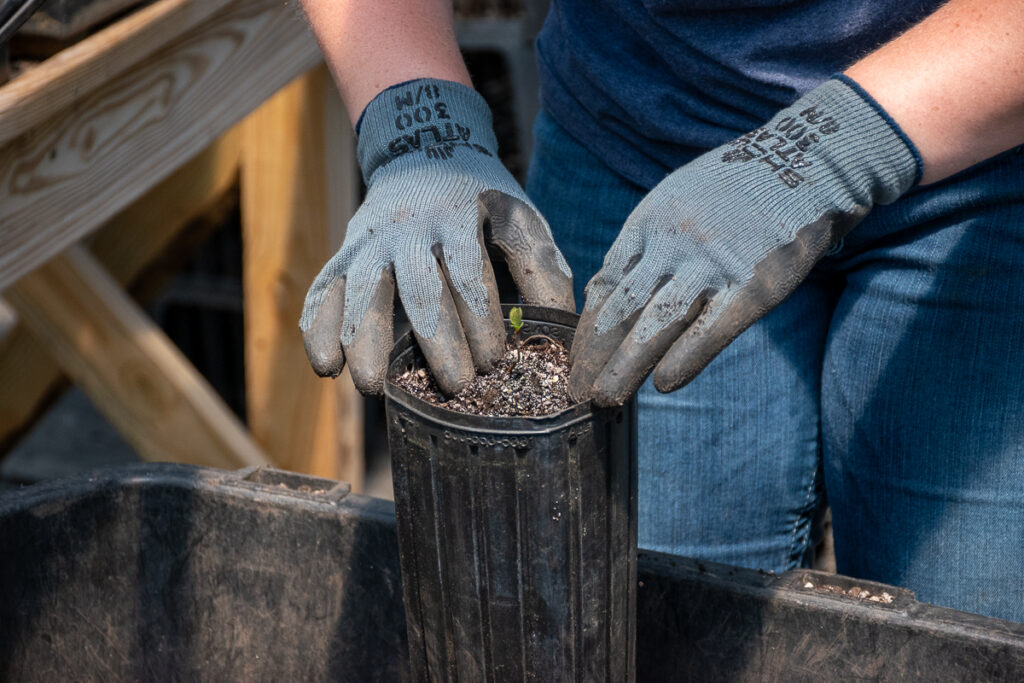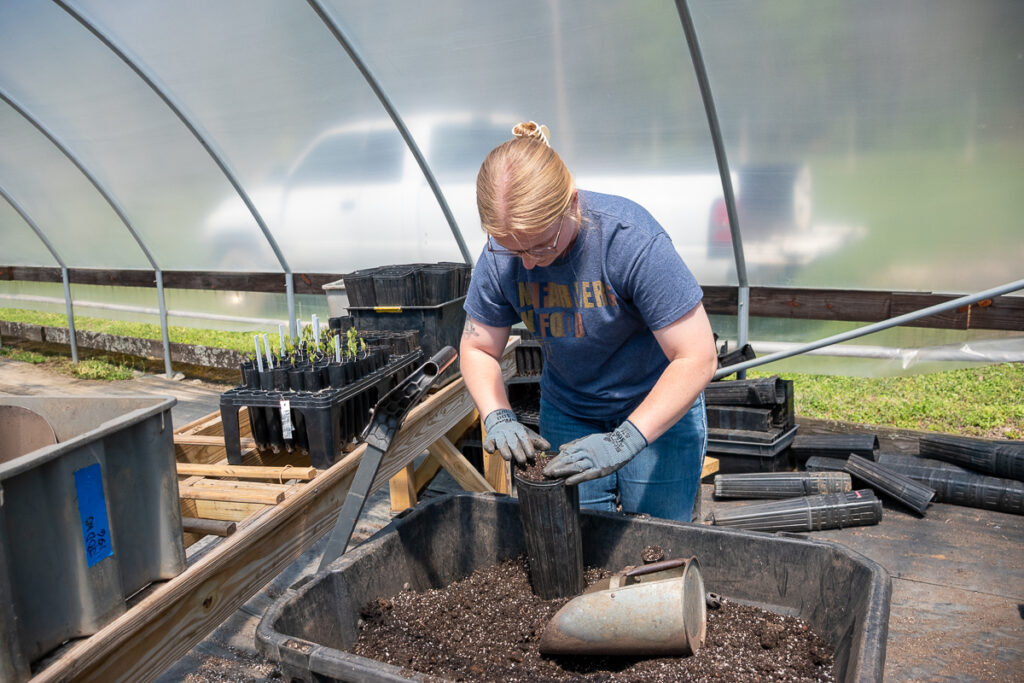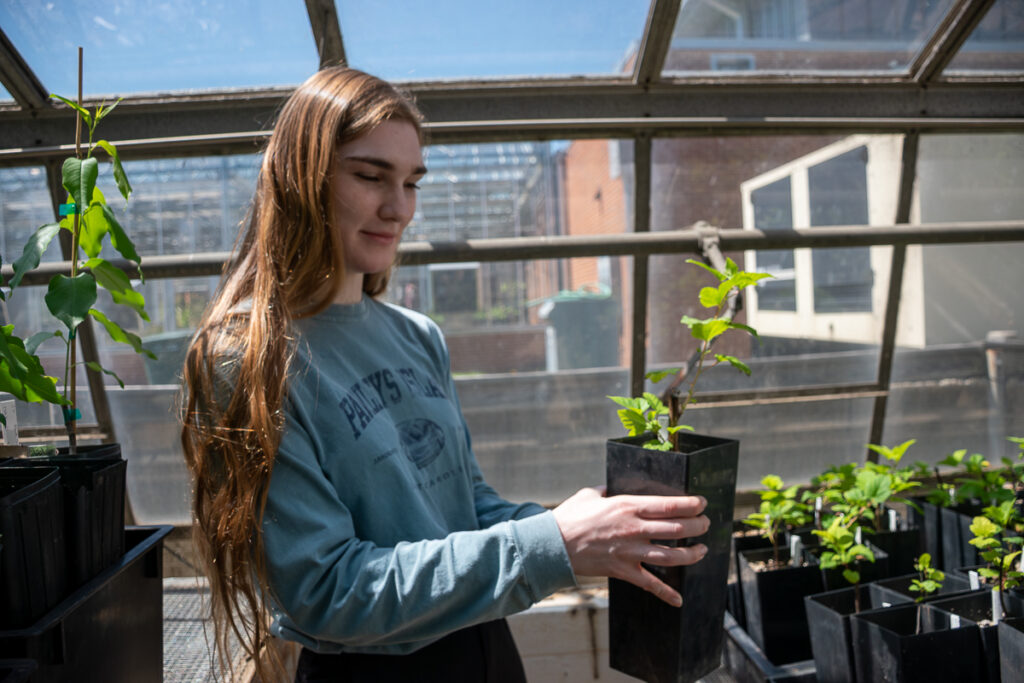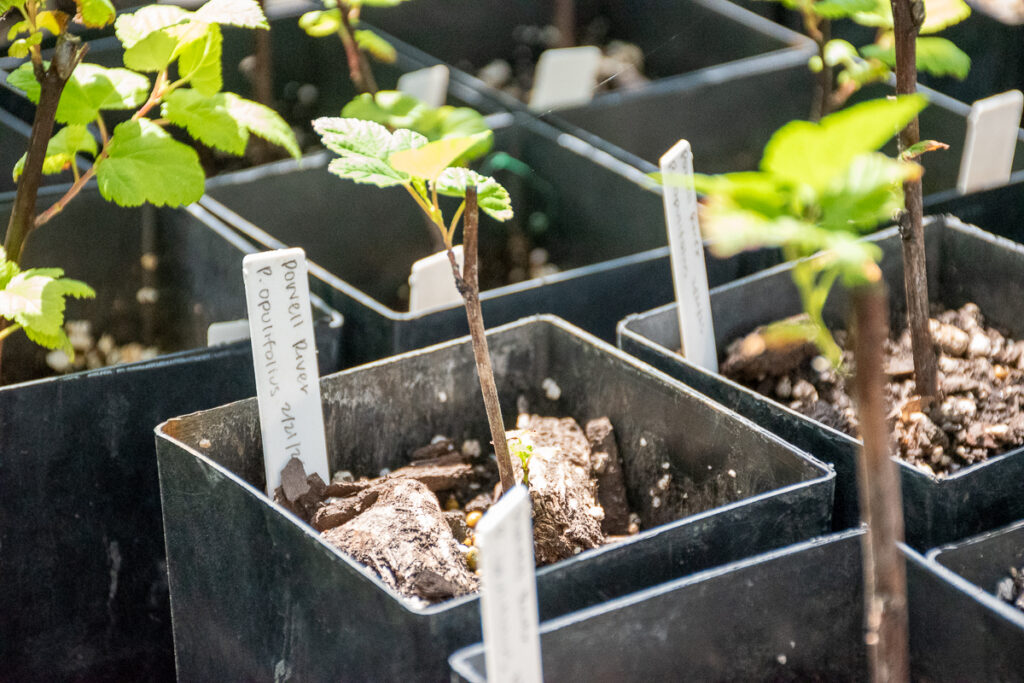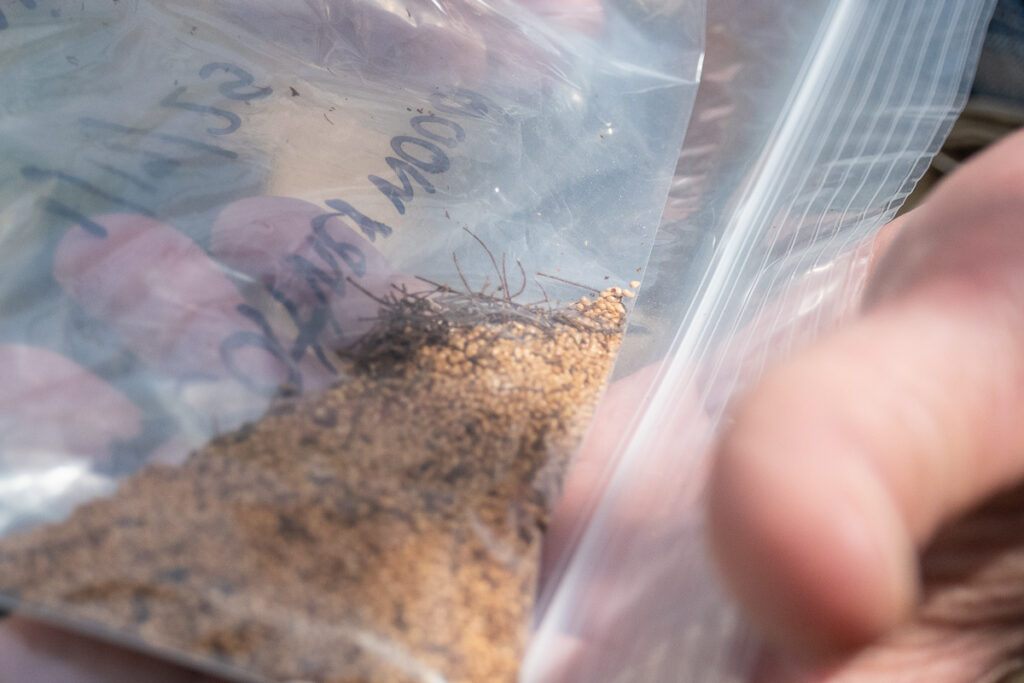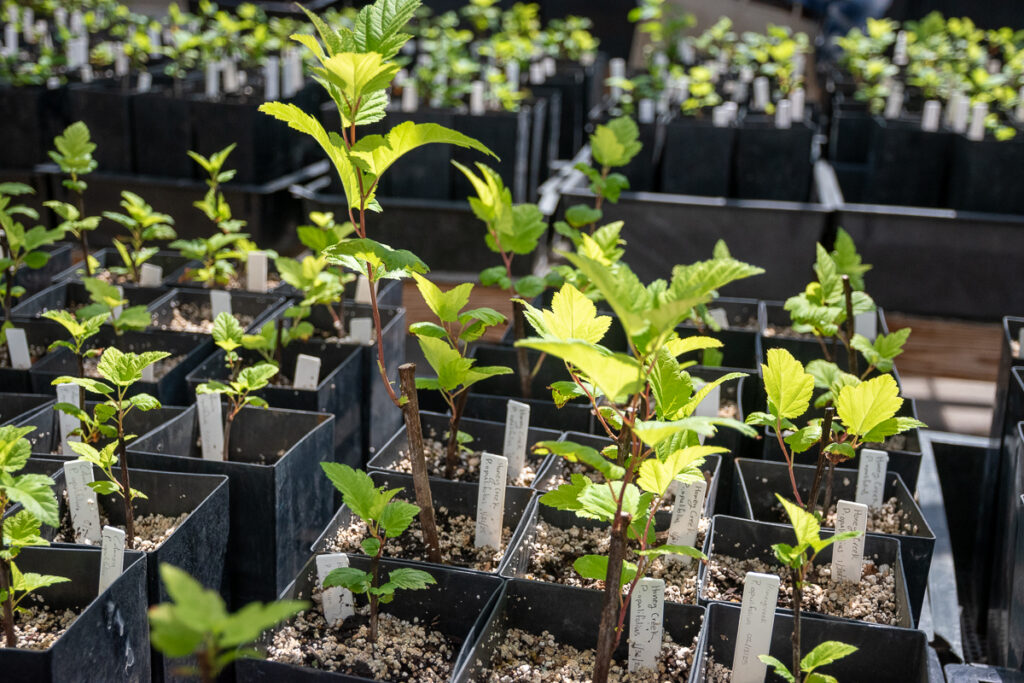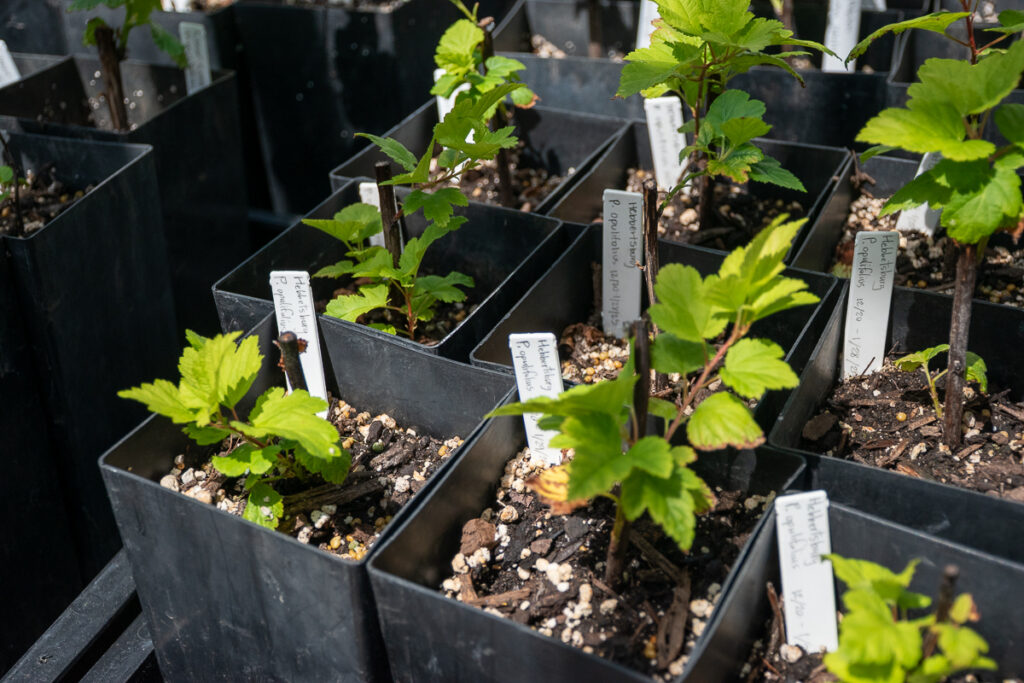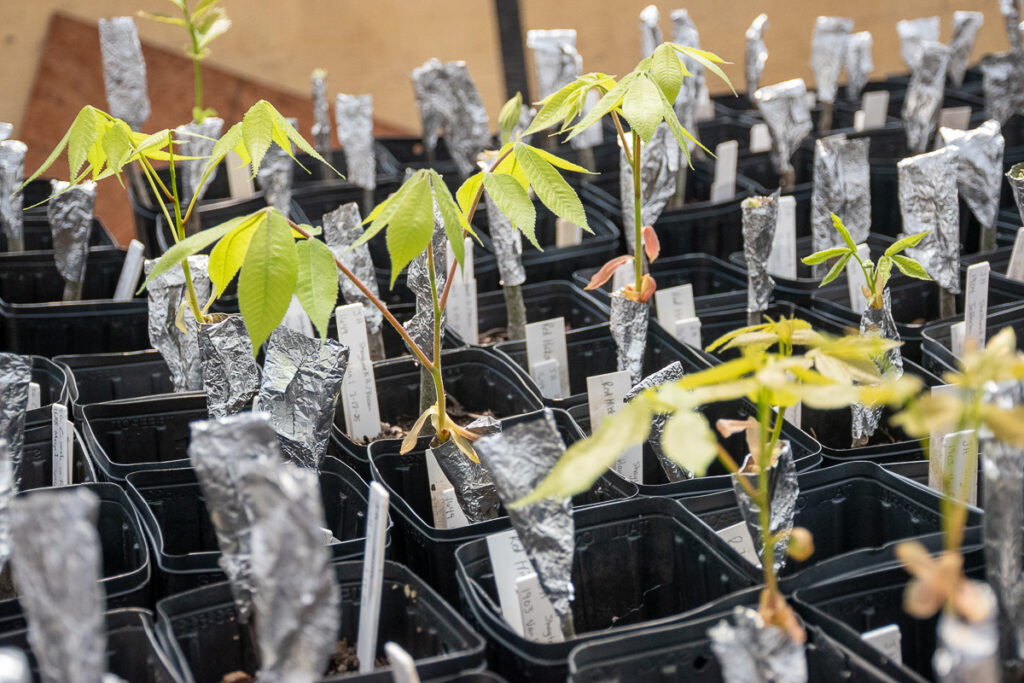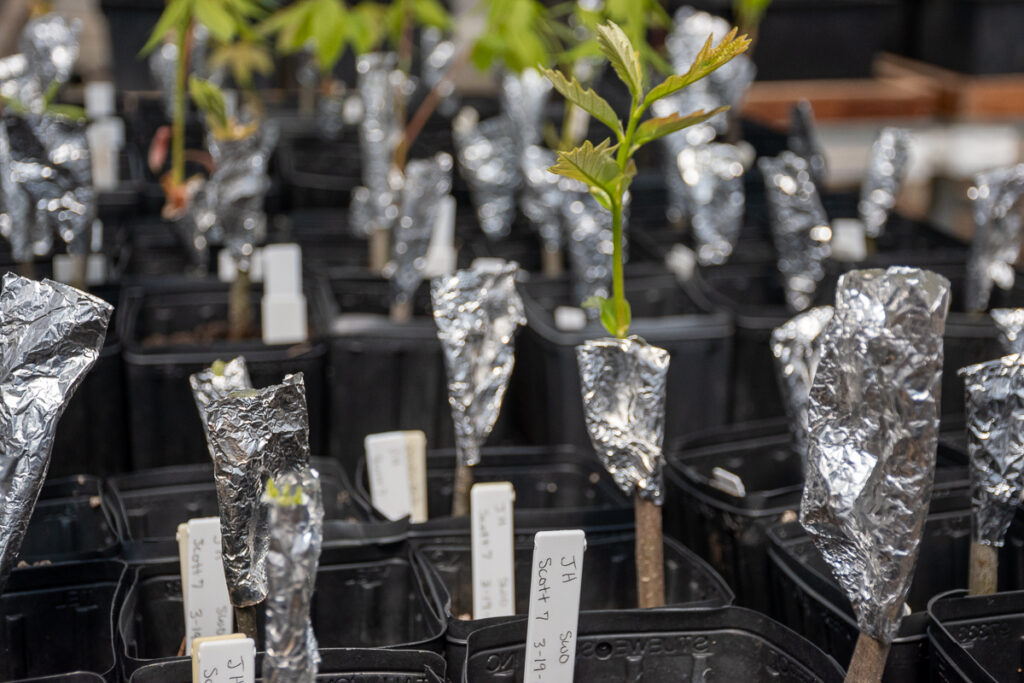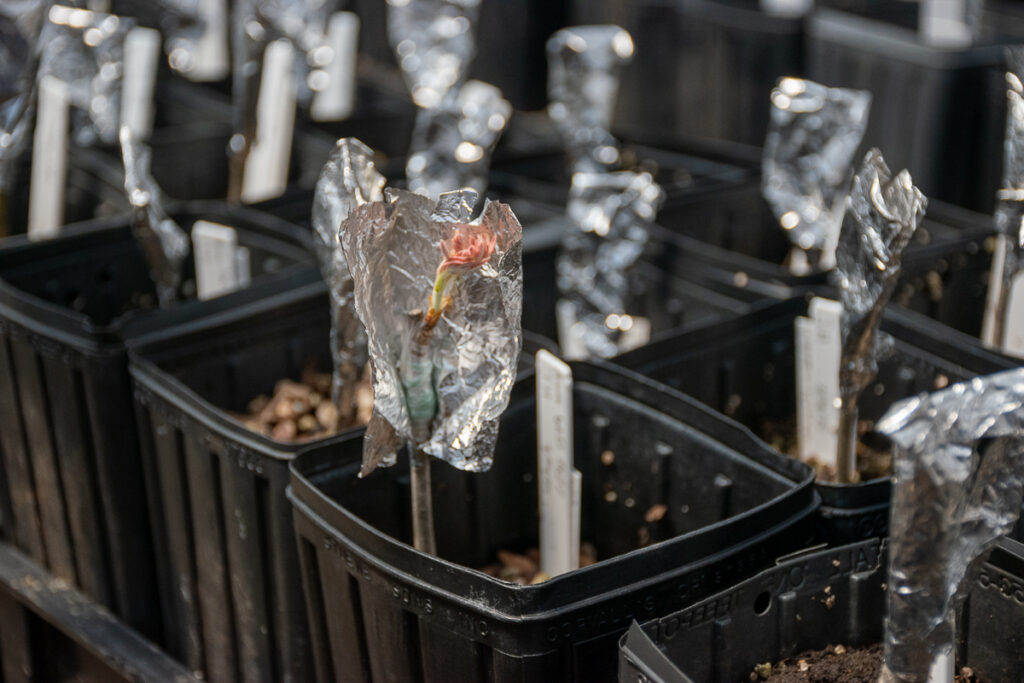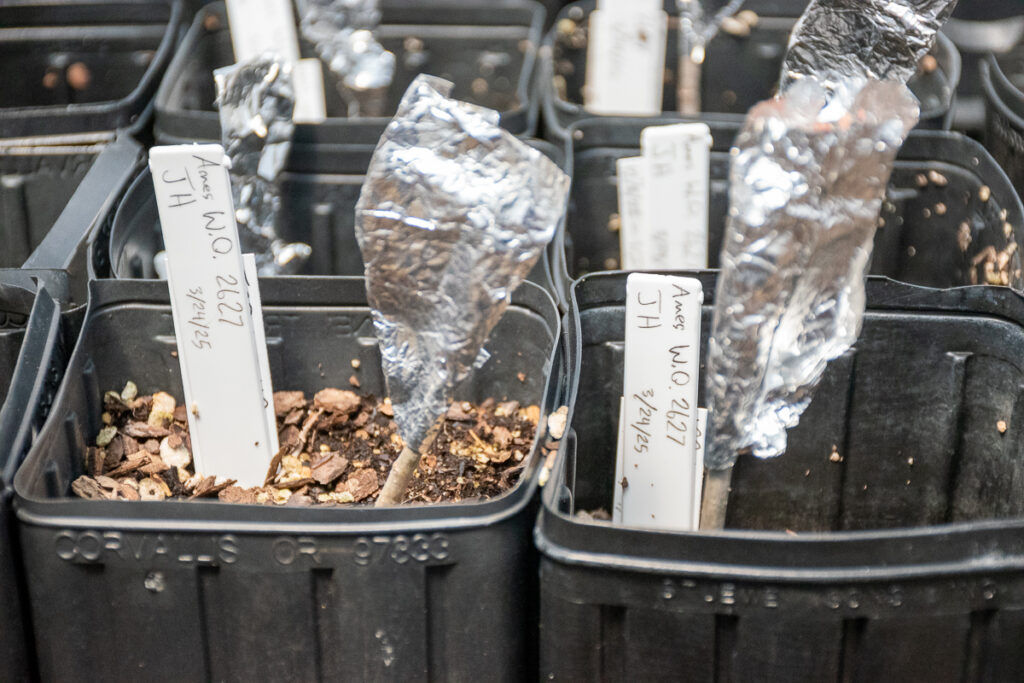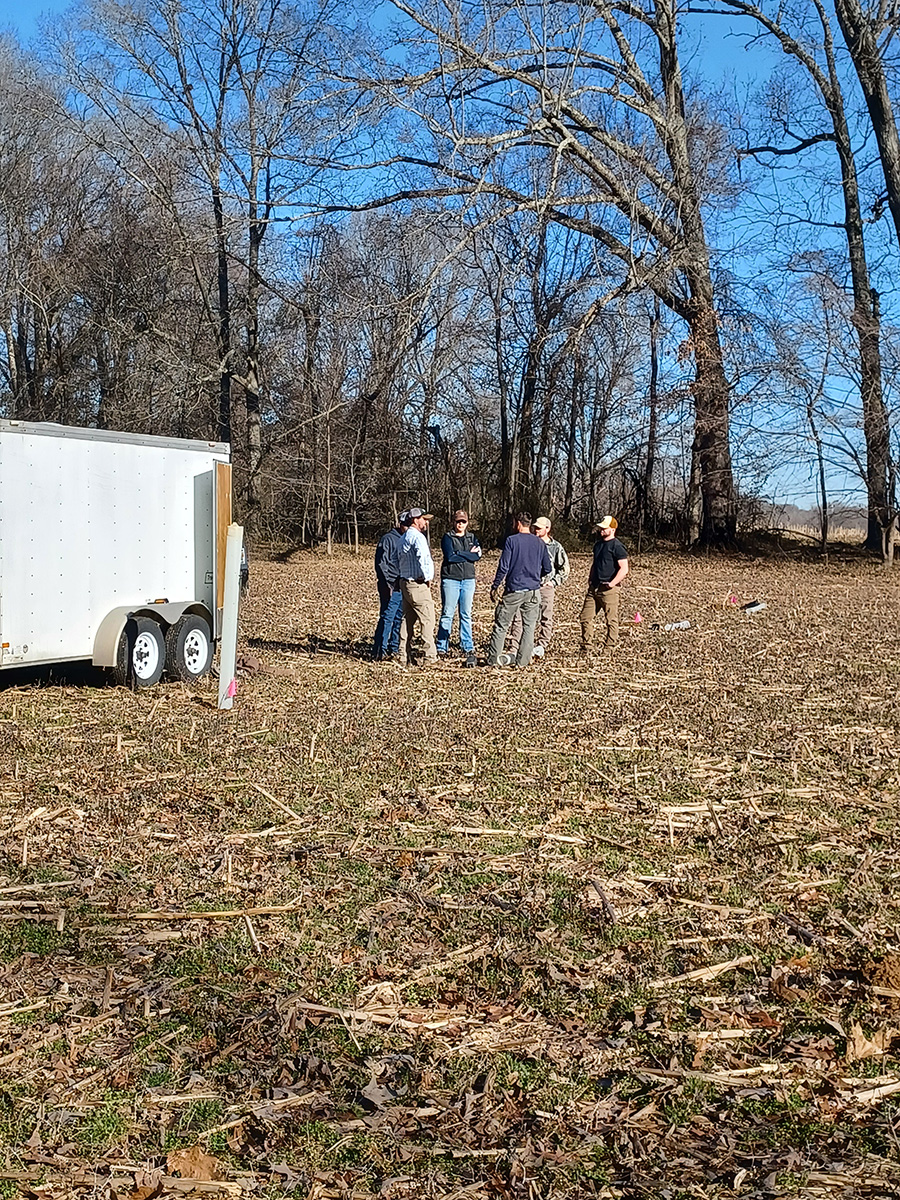
Harbison’s Hawthorn seed orchard established
The UT Tree Improvement Program established a Harbison’s hawthorn seed orchard at the Milan AgResearch and Education Center in March. The tree is one of the rarest woody plant species in North America.
The Natural Resources Conservation Service found a small population of the tree in Obion County in 2014. In 2023, UT-TIP offered to help the NRCS conserve the species to eventually provide seed to the East Tennessee Nursery.
UT-TIP used Washington hawthorn from a commercial nursery as rootstock for grafting the trees in Obion County. The program saw successful growth in the chip-bud grafts in the summer of 2024. The program planted these conal grafts on the Milan AgResearch and Education Center as a seed orchard.
The research team behind the seed orchard includes Program Director Scott Schlarbaum, Research Associate Ami Sharp, Research Associate Jason Hogan, Research Specialist TJ Graveline, and Graduate Research Assistant Jesse Parker.
The program plans to plant more Harbison’s hawthorn. In April, Student Assistant Abby Clinard replanted some seedlings at the program’s field lab on the East Tennessee AgResearch and Education Center. The seedlings occupy most of the program’s shade house.
Ninebark clones for seed orchard
Hundreds of ninebark clones sit inside Greenhouse 10 on the UT Institute of Agriculture campus. The species is used for stream and habitat restoration and can be propagated by rooted cuttings. Research Specialist Erin Victorson has rooted 511 cuttings from 30 different sources across eastern and middle Tennessee.
The ninebark clones will eventually be planted as a seed orchard to provide seed to the East Tennessee Nursery. The nursery needs five pounds annually, which is about five million ninebark seeds.
Grafting underway
Hundreds of new grafts now sit inside one of the program’s greenhouses on the UTIA campus. Research Associate Jason Hogan grafted white oak, sand post oak, shellbark hickory, shagbark hickory, and swamp white oak.
The plants come from different sources across the state, including selections from the new Ames AgResearch and Education Center’s white oak seed orchard. The sand post oak grafts comes from the state’s only sand post oak population near Grand Junction, Tenn.
UT-TIP also signed a five-year agreement with the Tennessee Division of Forestry and the Tennessee Wildlife Resources Agency on developing locally adapted and genetically improved seed for future Tennessee forests.
